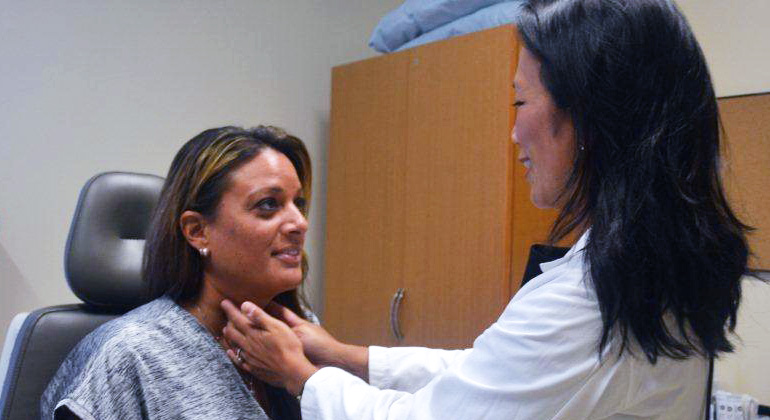
Parathyroid Hyperplasia
Parathyroid hyperplasia is the enlargement of all four parathyroid glands. The parathyroid glands are four glands in the neck that produce parathyroid hormone (PTH).
Causes and Risk Factors for Parathyroid Hyperplasia
Parathyroid hyperplasia may occur sporadically in people without a family history of the disease or as part of three inherited syndromes:
- Multiple endocrine neoplasia 1 (MEN1)
- MEN 2A
- Isolated familial hyperparathyroidism
In the familial syndromes, a mutated gene is passed down in an autosomal dominant fashion. That means you only need to get the gene from one parent to develop the condition. In MEN 1, the problem is associated with other tumors in the pituitary gland and the pancreas. In MEN 2A, the over-activity of the parathyroids is associated with tumors in the adrenal gland or thyroid.
Signs and Symptoms of Parathyroid Hyperplasia
Symptoms of parathyroid hyperplasia may include the following:
- Bone fractures
- Constipation
- Kidney stones
- Lethargy
- Muscle pain
- Nausea
Diagnosis of Parathyroid Hyperplasia
Your doctor will order blood tests to check your calcium, phosphorus, chloride, bicarbonate, and PTH levels. You will also undergo a 24-hour urine test to determine how much calcium is being removed from your body. In addition, bone x-rays and a bone density test can help detect fractures, bone loss, and bone softening.
Treatments for Parathyroid Hyperplasia
Surgery is the preferred treatment. Typically 3 ½ glands are removed. The remaining tissue may be implanted in your forearm so a doctor can easily operate on it if your symptoms come back. This tissue will also help your body control your calcium levels.
We Can Help
Patients with diseases of the thyroid and parathyroid come to the Mount Sinai Health System in New York City from all over the world. We provide comprehensive state-of-the-art care based on the latest innovations in the field. Our surgeons are internationally recognized as experts who excel both in the academic arena and in their own clinical practices. Please call us today to schedule an appointment at 212-241-9410.